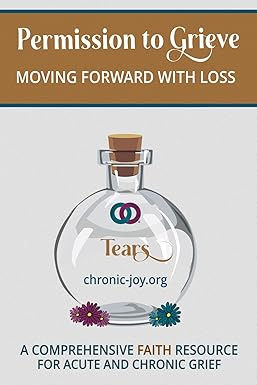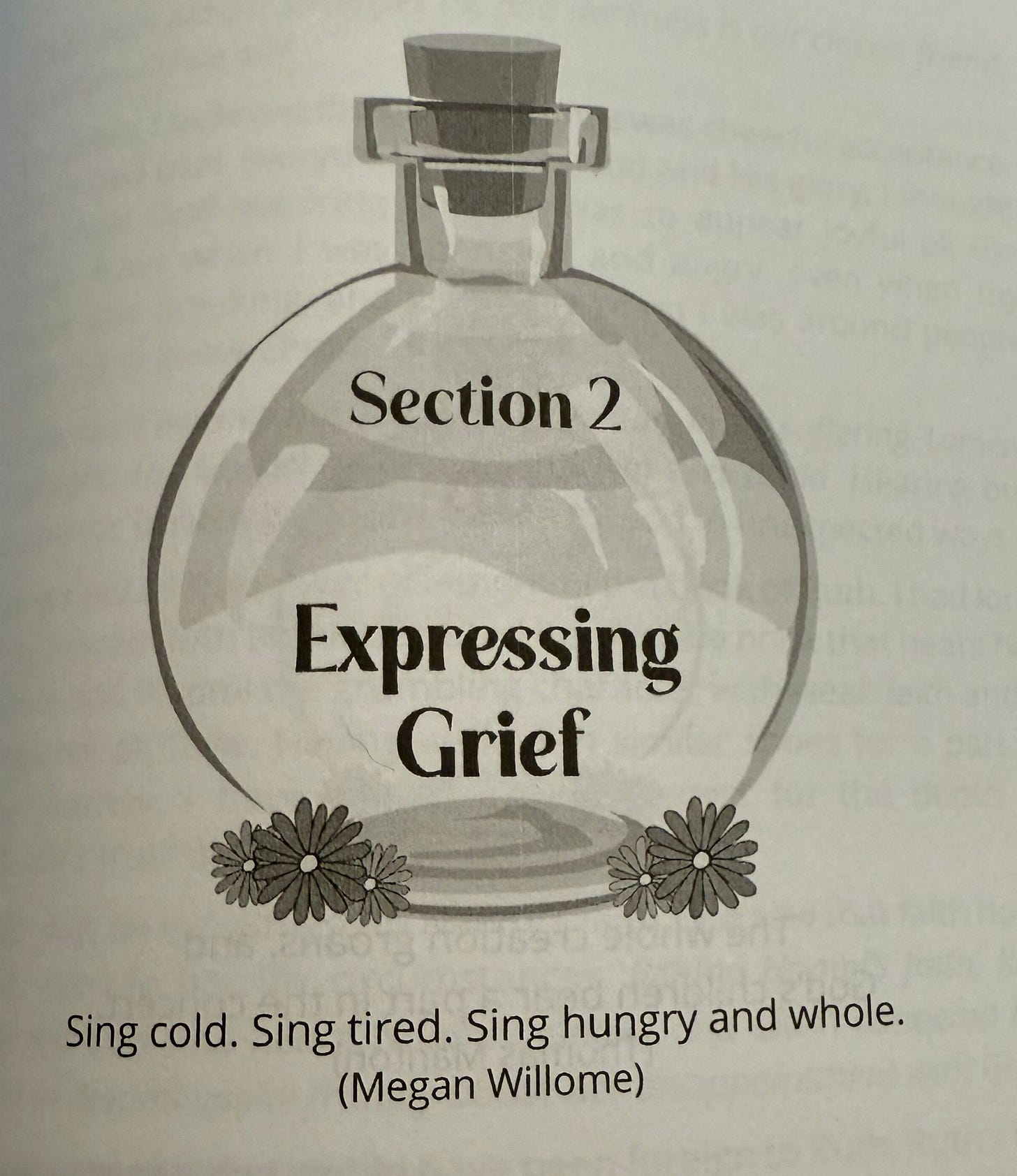'Permission to Grieve'
two essays and a poem excerpt in Chronic Joy's new book
Hello, Poetry Friend
I met Cindee Snider Re at a writer’s retreat at Laity Lodge in 2011. I was supposed to go in 2010, but even a few months after my mom died, I was still grieving too much to go. A year later I was ready. It’s odd that I can’t remember actually meeting Cindee, but I know it was at a meal, when we lingered over tea and talked. I’d put my money on it being breakfast.
After that retreat Cindee went on to co-found Chronic Joy, an online ministry for people walking with chronic illness, mental illness, chronic pain, and disability. Over the years I have written pieces for them, even though that has not been my road. But I do know sorrow and suffering. I am acquainted with grief.

My first essay included in this collection of essays, poems, and resources is titled “Celebrating a Life of Chronic Joy: Good - Better - Best.” It’s about someone beloved by all members of the Create Healthy Wellness Center in Fredericksburg, Texas — a man named Michael S. Walter.
Michael lives on not only in this essay, but in my actual home. Like my husband, Michael was tall, and John bought his road bike, inscribed with the intials, MSW. Every time John does an outdoor ride, he adds #MSW to his Strava.
Here’s my introduction:
When I speak about Michael Walter to people who didn’t know him, I call him our Transplant Olympian. Following two liver transplants and all their complications, he became a long-distance swimmer, eventually earning 25 gold medals. For those who knew him, he was just Michael, the most joyful person I’ve ever known, with the biggest smile. Michael passed away in April 2021, following two decades with primary sclerosing cholangitis.
When I rode next to him in a cycling class, who encouraged me as if I, too had a shot at the Olympics? Michael. When a friend needed to improve her swimming technique to participate in a community triathlon, guess who trained her? Michael. Who spent the days before Thanksgiving making more pies than his family could possiblye eat? Yep, Michael.
My second essay is more personal. It’s titled “The Leftovers: What Seems Dead May Be Sleeping.” It includes a meditation on the raising of Jairus’ daughter in Mark 5 and a story about what happened the first time I sang “Transfigure Us, O Lord” at Mass one August 6, the Feast of the Transfiguration.
The hymn “Transfigure Us, O Lord” by Bob Hurd and arranged by Crais S. Kingbury is only a few decades old, but it looms large in my heart. One August Sunday, a man opened the door at the back of the church, speed-walked down the center aisle, and came right up to the priest while he was giving the sermon. The man wore an old T-shirt and short short enough to offer no concealment for a weapon if there had been one. A polic officer slipped out the side door and called for assistance. I later learned the man had stopped his truck in the center of the road without parking.
The man said something to the priest, who listened briefly, then gestured for the man to sit on the front row. The man sat, and the priest preached on—didn’t miss a beat. Afterward he sat beside the man and listned while I led the congregation in singing “Transfigure Us, O Lord.”
My griefs have changed me. I look different, sing different, read and pray different. And no, I refuse to say differently, as if this change were only an adverb. It is a re-me-ing.
Grief allowed me to find my “Golden-cheeked warbler,” first published at The Way Back to Ourselves and now part of my collection Love & other Mysteries. Cindee graciously included my favorite lines in Permission to Grieve.
Happy poeming!
Megan


